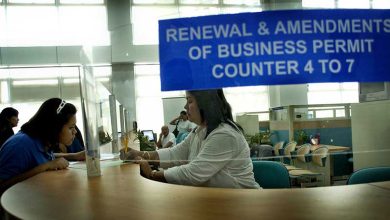Yen continues to weaken even after Ueda’s rare FX warning

THE YEN has weakened in the wake of the Bank of Japan’s (BoJ) surprise tweak to its yield curve control (YCC) program, a fact that won’t go unnoticed by central bank officials after Governor Kazuo Ueda took the unusual step of acknowledging that currency issues were considered in making policy decisions.
Ueda surprised many BoJ watchers last month in a post-policy meeting press conference, by saying that foreign exchange (FX) volatility had been a factor that prompted the BoJ to let 10-year bond yields rise beyond 0.5%.
That position appeared to contradict past communications from the central bank that sought to emphasize that currency policy fell fully under the remit of the finance ministry, analysts said. Usually the bank says it concerns itself solely with any impact the yen’s moves might have on the economy and inflation.
“Ueda took a step further in indicating the BoJ’s concern over currency moves,” said Hiroshi Miyazaki, senior economist at Mizuho Research & Technologies. “Ueda seemed to be trying to communicate more clearly in order to send a warning to market players.”
The question now is whether the BoJ’s policy decisions may be impacted more by currency moves. Despite Mr. Ueda’s warning, the Japanese currency fell to as low as 143.89 per dollar last week, a weakening spurred by the rise in US treasury yields after Fitch Ratings downgraded its assessment of US credit.
“I think many people took his remarks as a warning against the weak yen,” said Daisuke Karakama, chief market economist at Mizuho Bank in Tokyo. “But by citing the currency as a factor, Ueda may be increasing the probability that the market will go on an offensive toward a weaker yen. The market may test how much weakness in the yen the BoJ will tolerate.”
The BoJ said last month it will control 10-year yields with “greater flexibility,” by allowing fluctuations from 0.5% and by offering to buy the government bond at 1% every business day, effectively creating a higher upper ceiling.
At his post-meeting press conference, Ueda cited YCC side effects spurring currency volatility as one of the reasons for the revision to the program. After reiterating a standard assurance that the BoJ doesn’t target exchange rates, Mr. Ueda added that “within the context of YCC’s side effects, and our need to quell financial market volatility, currency volatility was taken into consideration in today’s move.”
Mr. Ueda’s right-hand man Shinichi Uchida also stressed that point at a press conference last week by saying that volatility in the currency market was “an important element” that led to the policy decision.
While such comments could serve as a warning against market participants, they could also spur speculation of further policy change if the yen continues to weaken.
With his forward-looking and risk-management focus, Mr. Ueda’s overall policy approach is similar to the norms set by other central banks, according to Naka Matsuzawa, chief strategist at Nomura Securities Co. However, the reference to foreign exchange volatility as a factor behind the YCC change was unusual, he added.
“It’s undeniable now that expectations for policy change and a weak yen are more closely linked,” Mr. Matsuzawa said. “It would be wise for the BoJ to put out this potential fire before further yen weakness spurs rate hike expectations.”
While the currency market is still digesting the meaning of the BoJ’s somewhat complicated policy, the direction of the yen hinges on how the BoJ operates its bond market operation and where yields will settle, according to Atsushi Takeuchi, a former head of foreign exchange division at the BoJ.
“The BoJ has always paid close attention to the currency market,” said Takeuchi, currently chief research fellow at Ricoh Institute of Sustainability and Business. “It just made its long-held stance clear that it doesn’t want abrupt moves to either side, as that would exert a drag on businesses and households and become a political concern.”
So far the central bank has intervened in markets twice last week to limit the increase in yields.
Mizuho Research’s Mr. Miyazaki said the BoJ can only allow 10-year yields to rise to around 0.7% to narrow rate differentials. Politicians and government officials won’t tolerate any moves higher than that, as it would increase the cost of fiscal spending too much.
In Japan, the finance ministry is in charge of foreign exchange rates and any currency intervention is decided by the finance minister. The BoJ carries out the action on behalf of the ministry. After last autumn’s highly watched interventions to support the yen, significant weakening is likely to spur more speculation over more action from authorities.
“I don’t think it’s likely to happen, but if the yen doesn’t stop falling even with the yield around 0.7%, then it will be the finance ministry’s turn to step in,” Mr. Miyazaki said. — Bloomberg




